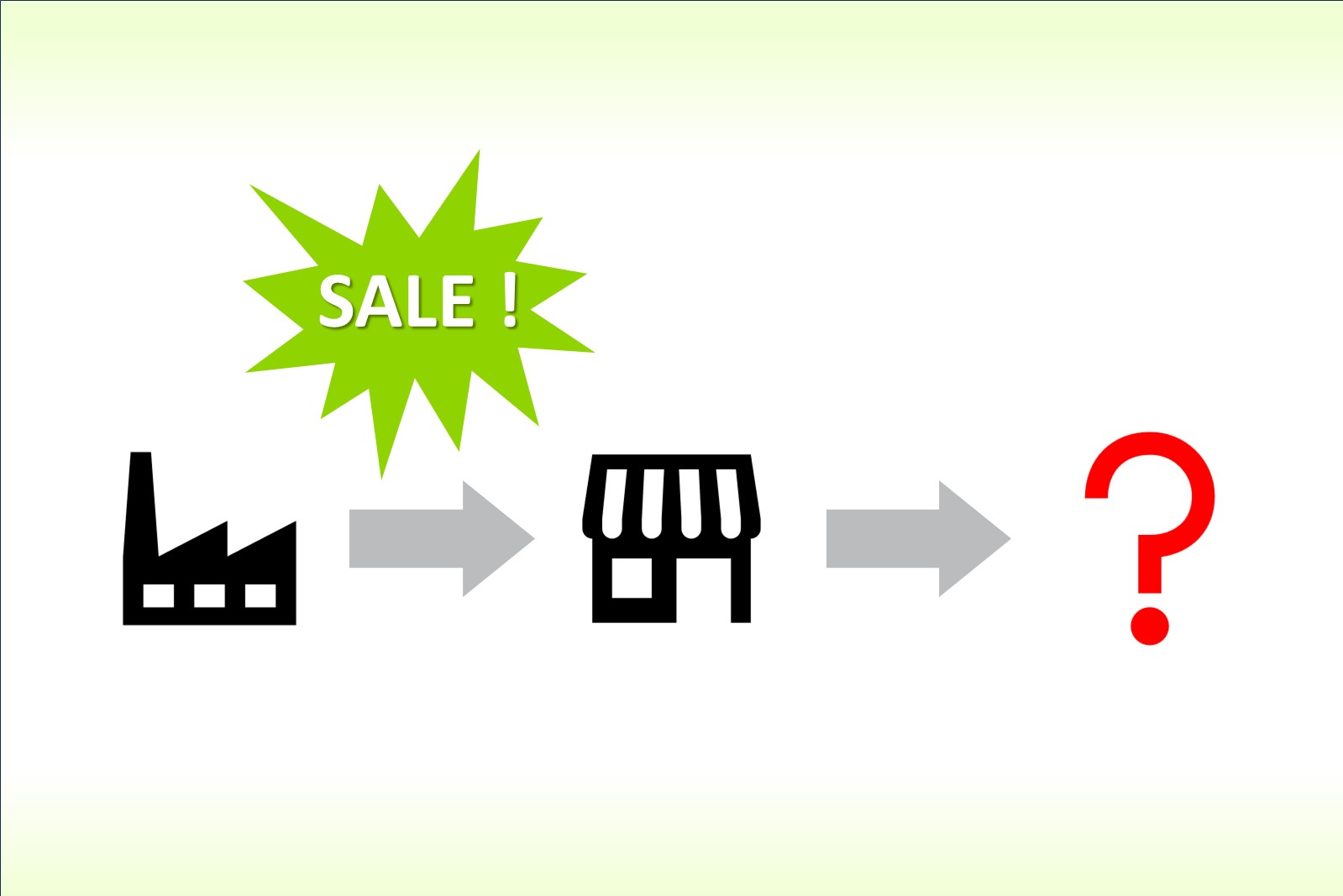
Business development tactics to help import F&B brands in Japan prepare for and grow beyond entry.
Table of Contents:
Market entry is often celebrated as a major milestone. Many talk about "entering a new market" as if it were the goal itself. Yet in reality, market entry is only one step of many. The true challenge is not getting in - it is staying, growing, and generating profit.
This is even more true in the case of Japan for Western brands, because most were not created with the Japanese market in mind, but with a Western market. While finding an entry point for an imported product in Japan is often more challenging than in Western markets, achieving growth is even harder without the right groundwork and strategic alignment.
An agent - here meaning a typically commission-based sales agent or sales representative in the import product segment - may open the first door. But if that is your only strategy, the door can close just as quickly as it opened. To succeed in Japan, F&B brands need to look beyond agents and invest in the groundwork needed for extended growth.
Agents play a role, but their activity is often misunderstood. Many brands assume that appointing an agent - and later a distributor - will take care of all aspects of building market presence and growth. The reality is more nuanced.
Here are some structural challenges of relying only on agents:
Preexisting networks and shared interests. Agents work within a preexisting circle of buyers and often represent multiple competitors to your brand. Their priority is to maximize their network, not to invest in your brand.
Undefined commitment. Their involvement is often undefined, as commission-based arrangements give them freedom over when they act and how much effort they put in. While it is good that there is no cost until revenue is on the table, it also makes it difficult for brands to set clear expectations for support and future trajectory.
Ad-hoc matching. F&B brands want to expand visibility by finding the best consumer fit. Agents, however, typically rely on testing products through their immediately available channels, seeing what sticks rather than investing in a structured or long-term fit. This can be useful for exploring early interest, but it is not a substitute for building groundwork for strategic growth and optimized positioning.
Follow-up limitations. An agent's mandate usually does not extend to tasks like localized positioning or brand strategy - the very things that help brands move from entry to growth.
The result: an agent can secure a meeting, potentially an initial order. This makes them valuable partners for entry - but further growth requires additional steps like localized positioning and strategic support.
Agent activities can be beneficial for initially testing market interest or creating some visibility at a low cost. For smaller brands with limited budgets, exploring potential matches from existing connections can be a valuable first step. But broader expansion and growth usually come when brand investment, localized positioning, and ongoing support are added.
At TOO International, our work also includes activities from agents' playbooks, such as outreach and introductions. But we approach them as part of a broader business development strategy, ensuring that these first steps are paired with the groundwork needed for long-term growth.
International marketing studies also confirm this: pure agent-only entry models can help with first orders, but continued growth typically requires investment in branding, localization, and market development.
So, what else contributes to sustainable success in Japan? Based on years of experience supporting Western F&B brands, I see three preconditions that often remain invisible without knowledge of the local market - and that can make or break a Japan strategy.
Many F&B brands underestimate how different Japan is from their home markets. Barriers such as local regulations, domestic supply chains, price structures, and consumer expectations can stop even the best products from scaling.
Example: Several European brands joined a trade show in Japan, collected business cards, and returned home expecting quick deals. When communication stopped, they assumed language or cultural barriers were to blame. In reality, the deeper issues were missing information, misunderstandings about the product, or too much effort required from the distributor to figure it out.
Lesson: Trade show disappointment often comes from skipped groundwork, not just cultural gaps.
Another frequent barrier is pricing. Many F&B brands underestimate the combined impact of import duties, logistics, distributor margins, pre-included marketing budgets, and retail expectations. What looks competitive in your domestic market can easily become unworkable in Japan.
For many Western companies, "localization" means translating existing labels or brochures into any local language. But in Japan, it must go deeper - and not necessarily in design or packaging.
A critical but often overlooked dimension of localization is the fit between a brand's portfolio and Japanese distribution partners. Target consumer segments can differ widely by market, and each distributor has a specific customer base. Not all products in a brand's lineup will resonate equally.
Example: Unicum, a Hungarian liquor brand, is consumed mostly as shots in Europe. In Japan, however, shots are limited to only a few occasions. By focusing on cocktail bars instead - a channel with long-standing culture and demand - we found a better fit. Building a bartender community around this theme helped the brand gain recognition and loyalty.
Short case clip: repositioning Unicum for cocktail culture in Japan.
In their home markets, F&B brands naturally invest in product–market fit, positioning, and building relationships before sales activity starts. But when expanding abroad, many skip these steps and jump straight into sales, hoping that an agent or distributor will do the work.
Example: A premium European dairy brand initially faced cautious reactions from distributors. High-priced, perishable items demand clear positioning. After refining the offer and identifying the right channels, supported by trust-building activities, the brand secured a committed importer. Within the first season, we helped the products enter a wide range of high-end retail channels.
Lesson: When you reduce risk and effort for your distribution partners, they usually put more into sales - and results follow more easily.
👉 Read more about “sales vs. business development” in my previous article: sales vs. business development.
"People don't buy the best products; they buy the products they can understand the fastest."
— Donald Miller · Source: Building a StoryBrand
This applies directly in Japan. An agent may get you in front of a buyer, but if you cannot clearly show your competence, readiness, and credibility from the perspective of the customer, the opportunity fades.
Localized positioning does more than support sales. It communicates commitment. It signals to Japanese distribution partners that you are ready to invest and build together. It shows that you have created something with them in mind, so they do not need to take the risk of guessing whether it fits.
That perception can be the difference between a polite "no thank you" and a committed, long-term partnership.
Market entry is only the first step. Agents can help open doors, but further growth often requires additional support. Sustainable success in Japan requires:
Pairing introductions with structured preparation is what turns first steps into lasting success.
👉 If you want to explore how ready your brand is for Japan, consider our Japan Market Fit Audit. It clarifies your potential barriers, signals your opportunities, and helps you map the distribution partner pathways most relevant to your product.
The Japan Market Fit Audit is not listed on our services page - it is designed as a quick and easy initial step for brands to evaluate what tactics and groundwork they need before starting out. To learn more and take the first step, please contact us here.

About the author:
Marton Lendvai
CEO & Founder of TOO International
He is the CEO and founder of TOO International, a Tokyo-based business development firm supporting European food and beverage brands in the Japanese market. With over 20 years of business experience in Japan, Marton has helped dozens of brands localize their market approach, find ideal partners, and achieve long-term success.
Full bio (see the "Meet Marton" section)
5-year import data (2020–2024) reveal Japan’s fast-growing drink categories and 2026 outlook.

Why sales fails in Japan – and why business development is key for import F&B brands.

Discover why curated B2B tasting events are a high-impact method for F&B brands expanding in Japan.